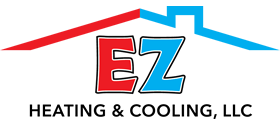For Sales & Service
Servicing Knoxville, Friendsville, Maryville, Lenoir City, Farragut, Loudon, Oak Ridge and Tellico Village
Air Conditioning Maintenance
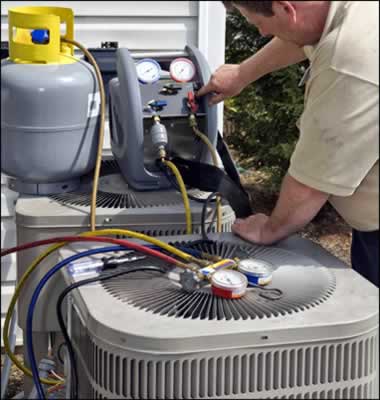
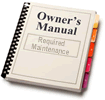 There are some great reasons to perform maintenance on your central
air conditioning system. Industry leading air conditioner manufacturers,
such as Amana, Goodman, Carrier and Rheem, require annual maintenance to
maintain the equipment warranty. Just like maintenance is required
for cars, it is required for central air conditioners. The owner's
operation manual describes the required maintenance which is figured
into the manufacturer's warranty period.
There are some great reasons to perform maintenance on your central
air conditioning system. Industry leading air conditioner manufacturers,
such as Amana, Goodman, Carrier and Rheem, require annual maintenance to
maintain the equipment warranty. Just like maintenance is required
for cars, it is required for central air conditioners. The owner's
operation manual describes the required maintenance which is figured
into the manufacturer's warranty period.
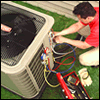 Performing professional annual or semi-annual air conditioning maintenance
will keep your air conditioner clean, lubricated with proper fluid
levels, such as Freon, while performing at its peak efficiency. This reduces noise, run time and energy consumption,
all of which is a good thing.
Performing professional annual or semi-annual air conditioning maintenance
will keep your air conditioner clean, lubricated with proper fluid
levels, such as Freon, while performing at its peak efficiency. This reduces noise, run time and energy consumption,
all of which is a good thing.
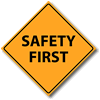 Since
central air conditioning units use high voltage and are often paired
with gas furnaces, it is important to remember, there is a reason
the state of Tennessee requires licensed HVAC/R professionals to install
and maintain central air conditioning and heating systems and it
starts with safety. Maintenance prevents and helps avoid potential
system failures and hazards. Maintaining your AC system today my
help you avoid a costly repair tomorrow. It will keep your family safe and protect your property from a devastating event tomorrow.
Since
central air conditioning units use high voltage and are often paired
with gas furnaces, it is important to remember, there is a reason
the state of Tennessee requires licensed HVAC/R professionals to install
and maintain central air conditioning and heating systems and it
starts with safety. Maintenance prevents and helps avoid potential
system failures and hazards. Maintaining your AC system today my
help you avoid a costly repair tomorrow. It will keep your family safe and protect your property from a devastating event tomorrow.
Air Conditioner Maintenance Services
Most manufactures recommend annual and semi-annual air conditioning maintenance service. Some home and business owners want or require maintenance quarterly. We can help you decide which is best for you and design a maintenance agreement to make it as affordable as possible. Our maintenance services consider visually inspecting all accessible areas and parts of your central air conditioning system and manually inspecting specific parts while cleaning and lubricating appropriately. Please call our office with any questions or concerns you may have, we are always here to help.
Residential 18 Point Precision AC Tune-Up
| Keep Your Residential Central Air Conditioning System Properly Maintained With Our 18 Point Precision AC Tune-Up | |
|---|---|
| Check the Condition and Water Wash the Condenser Coil | Visually Inspect All Electrical Wiring and components |
| Check Condensation Pan and Drain | Check the Voltage and Amperage on Motors |
| Check Refrigerant Charge | Check Motor Bearings for Wear |
| Lubricate and Inspect Operation of Fan in Outside Unit | Test Compressor Starting Capabilities and Amperage Draw |
| Inspect Evaporator Coil, If Accessible | Test Capacitors |
| Check Air Temperature Drop Across the Evaporator Coil, If Accessible | Check Contactor for Burnt or Pitted Points |
| Inspect All Air Filters | Check Indoor Fan for Balance & Cleanliness |
| Check Main Disconnect | Check Service Valves for Leakage |
| Inspect Return System for Air Leakage | Check Thermostat |
